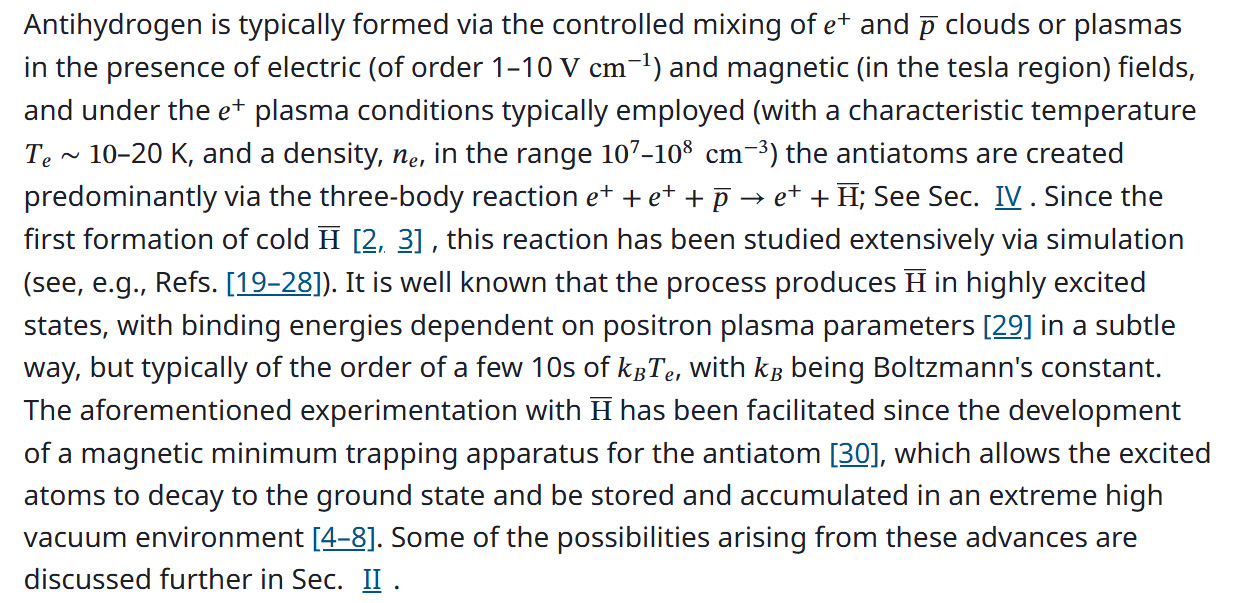Science
Related: About this forumThe Chemistry of Antihydrogen.
Well it looks like they're making antihydrogen over at CERN, Europe being a place to which scientists can escape the dismantling of science in the US. (One of the authors is American, but look for him to be gone.)
I stumbled across this one while looking for a paper on the vapor pressure of strontium metal, and I just had to reference it.
- Zammit, Mark C.; Baker, Christopher J.; Jonsell, Svante; Eriksson, Stefan; Charlton, Michael Antihydrogen chemistry Physical Review A 111, 5, 2025
The abstract:
The full paper has a lot of symbols not accessible from the DU editor, so here's a graphic capture of some text:

Looks like fun, doesn't it?
I could make some jokes about the fossil fuel greenwasher here who carry on about hydrogen as if it were a source of energy, rather than a way to waste primary energy - hydrogen is made from fossil fuels - but I won't.
lapfog_1
(30,942 posts)"hydrogen as if it were a source of energy"
Very true... unless there is a source ( readily available in the earth ) of pure Hydrogen... Hydrogen is an energy carrier ( sort of like a bulky battery ), not a source.
BTW, when antimatter contacts matter, the resulting reaction would be net no energy ( given the energy required to make the antimatter hydrogen )? or even negative. Correct?
NNadir
(35,990 posts)The energy comes from the French grid, one of the cleanest grids in the world.
How much went into this particular experiment is unknown to me. However, without having the paper before me, I recall that the antihydrogen was limited to a few atoms. The annihilation energy would be pure gamma radiation when the antihydrogen was released from the magnetic field and would not be recoverable in any case, and otherwise trivial. I'm quite sure the entire process obeyed the unpopular but irrevocable 2nd law of thermodynamics in spades.
I'm glad to agree with you on something although I'm unfamiliar with you and thus don't know of disagreements we may have had.
The "green hydrogen" cults have been around for half a century and they are pernicious inasmuch as they, among other pop fantasies, are designed to preclude real action on energy issues. Hydrogen is a very dirty enterprise.